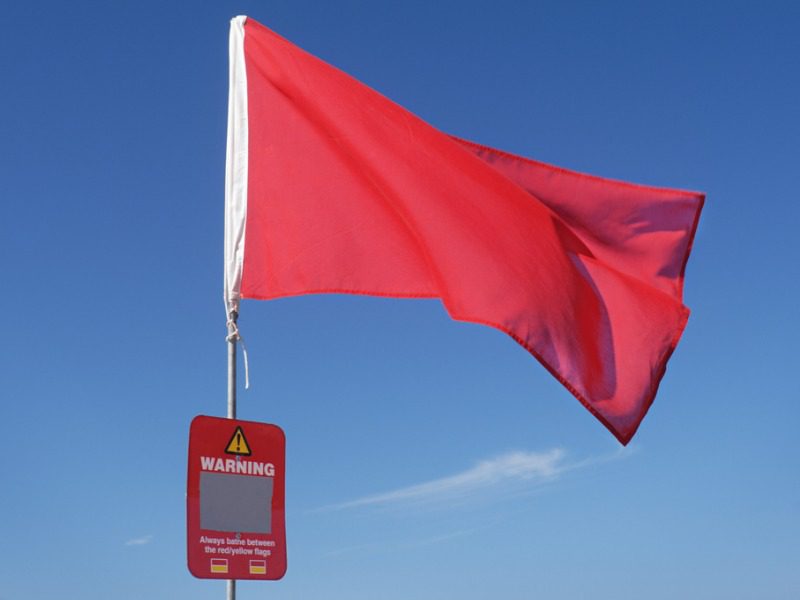These red flags may waive a brokerage buyer off a deal

Rising interest rates are changing the brokerage M&A environment and giving sellers a shorter timeline to produce the projected earnings.
And chances are, if they haven’t produced reliable returns already, the buyers may balk on a purchase, said Yan Charbonneau, president of Synex Performance d’affaires, a brokerage consolidator based in Quebec.
“In the crazy [low-interest] environment [during the pandemic], when money was free, you could buy any brokerages at a high price, saying, ‘Well okay, the synergies we’re projecting could be realized in the first year, or the second year, or the third — that didn’t really matter that much. Now, when we do our due diligence, we expect the synergies to be realized very soon and that they’re very concrete things,” he told CU.
“It was easy before to say, ‘Okay, this brokerage has always produced 5% or 6% organic growth. We’re going to bring it to 15%. And it wasn’t too hard of a deal because we had many years also to realize that projection. Now we’re saying, ‘Okay, if you want to have a super-high multiple, you’ve got to show us you’re already a fast-growing company, instead of saying that you will become one, because now you’re part of our group.”
Skin in the game
He noted it’s more common for principals selling their brokerages to keep some stake in the company after it’s sold. That lowers the amount buyers have to pay upfront for the sale. What’s more, brokerage owners who want to wash their hands and walk away from the business post-sale are a red flag for Charbonneau.
“If you’re not going to invest in your company for two years [i.e., owning shares in the brokerage after the sale], why would we invest in your company for 20 years?” he asked. Some in the M&A space said normalizations are more robust right now.
Normalization is a restatement of a brokerage’s historic financial performance to eliminate extraneous discretionary transactions and non-recurring items so that the earnings picture is consistent.
During the normalization process, Charbonneau sees a brokerage’s contingent profit commissions (CPC) as a potential red flag to a deal, particularly if it makes up too high a percentage of the selling brokerage’s EBIDTA.
“I would say we look more at CPC than ever,” he said. “CPC, because of the pandemic dynamic, has increased like never before. Everybody knows that. People are trying to sell us that this will be maintained forever, which is obviously not going to happen. So, we’re going to look at the quality of the volume and loss ratios more than before.
“Today, if CPCs are 40% of your EBITDA and they melt down [in the future], it’s going to hit like hell. So a red flag would be the proportion of your CPC in your total limit. If it’s too high, it’s not interesting.”
CPC can be a positive
Not all buyers see this as a definite deal-breaker, however.
“There are two sides when it comes to CPC,” said Westland Insurance President and CEO Jamie Lyons. “One thing we look for is a very high-quality book of business that can generate appropriate margin and profitability for our market partners. So, on one hand, it’s great to see a broker is generating good CPCs. That means they have very good books of business, and those books are being well-managed, well-run. On the other hand, you don’t want to see it being too high a percentage of overall revenues.
“Practically speaking, when we look at opportunities or underwrite deals…we would compartmentalize recurring revenues or commission revenues, excluding CPCs. And we would assign a different multiple depending on how we think about the durability of those CPCs.”
This greater focus on normalizations and the discussion around CPCs highlights the importance to buyers of steady, profitable growth, says Alex Wong, practice group leader for Smythe LLP’s transaction and valuation advisory group.
“I do think there are a lot of questions around whether those CPCs are sustainable,” he said. “If there’s a big, one-time bump in CPC, that’s different than if it’s been a high CPC over the years. I think [sustainability of CPCs] is required [for buyers] to give the benefit of the doubt [to sellers] and give them credit for benefits.”
This story is excerpted from one that appeared in the October print edition of Canadian Underwriter. Feature image by iStock.com/JohnGollop



